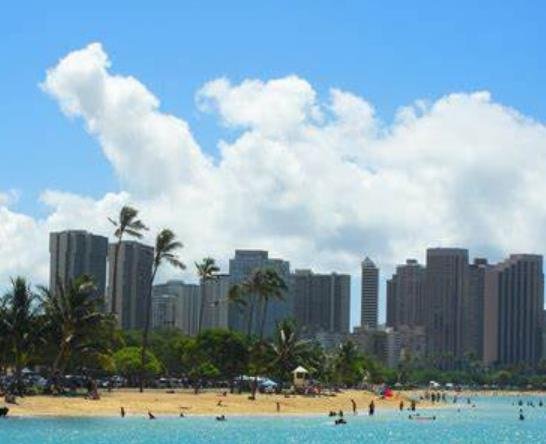Hawaii is cracking down. Lawmakers are raising red flags about a wave of unlicensed shops selling intoxicating hemp products. Some call them dispensaries, but they’re anything but legal — and officials say they’re spreading fast, without guardrails.
In a new move, the Hawaii House of Representatives has introduced a resolution urging state departments to get serious about enforcement. It’s not just a warning — it’s a direct call for coordinated action.
Lawmakers Say It’s Getting Out of Hand — Fast
According to House Resolution 141, lawmakers believe there are already more than 84 such dispensary operators on the islands. And that number? It’s climbing — “exponentially,” they say.
The concern isn’t just about the number of stores. It’s about what’s on the shelves. Some products labeled as hemp contain delta-8 THC, a compound with intoxicating effects that can still legally fall under the federal hemp law. That’s where the loophole lives.
Just one sentence in the resolution stands out like a siren: “The Department of Health, Department of the Attorney General, and Department of Law Enforcement are urged to coordinate an enforcement plan.” In other words, the state wants everyone on the same page — and fast.

No License, No Oversight, No Limits
Many of these stores are operating without cannabis licenses — but are still selling products that can get customers high. That’s the big issue.
Some sell gummies, oils, and vapes made with hemp-derived THC variants like delta-8 and delta-10. These aren’t technically marijuana under federal law, but they’re close enough to spark real concern. Especially when they’re sold without the same safeguards as legal cannabis.
• No age verification requirements
• No product testing for potency or safety
• No labeling standards
• No taxation or tracking
And yet, they’re open for business in plain sight.
The Legal Gray Zone That’s Fueling a Quiet Boom
This isn’t just a Hawaii problem. Across the U.S., hemp-derived THC products are flooding the market. Ever since the 2018 Farm Bill legalized hemp, producers have been finding new ways to extract compounds like delta-8 THC, which can get users high — legally, at least under federal rules.
But there’s a catch.
Many states have scrambled to pass laws banning or regulating these compounds. Hawaii, though, still lacks a consistent framework, and that’s created what lawmakers now describe as a regulatory vacuum. Entrepreneurs are filling that gap — and fast.
In 2023, the Hawaii Department of Health did pass interim rules banning inhalable hemp and gummies containing THC. But enforcement? That’s still hit or miss.
Just one sentence here sums up the situation: enforcement hasn’t caught up.
Small Shops, Big Profits — and Even Bigger Risks
Some of these so-called dispensaries look like head shops. Others mimic the sleek design of licensed cannabis stores. But one thing unites them: they’re off the radar.
The products are often cheaper than regulated cannabis, which makes them especially popular among younger adults and tourists.
And it’s not just about legality. There are real safety questions, too. Unregulated THC products have been found with inconsistent potency levels or even harmful additives. Testing? Rare. Dosage guidelines? Often missing.
Here’s a look at how this gray market stacks up:
| Category | Regulated Cannabis | Hemp-Derived THC Shops |
|---|---|---|
| Licensing Required? | Yes | No |
| Age Restrictions Enforced? | Yes | Rarely |
| Testing for Contaminants? | Required | Optional or none |
| Tax Revenue for State? | Yes | No |
| Oversight and Audits? | Regular | None |
So what’s being done about it?
A Growing Call for a Crackdown
The resolution itself doesn’t carry the force of law, but it’s a warning shot. Lawmakers want agencies to stop kicking the can down the road and start coordinating on enforcement.
There’s frustration building — not just from officials, but from licensed cannabis operators, too. They’ve played by the rules, paid the fees, followed regulations. Now they’re watching competitors sidestep the system with no consequences.
In a recent interview, one Maui-based dispensary operator called the hemp shops “a slap in the face.”
The sentiment is shared.
Enforcement May Be Tricky — and Politically Sensitive
Here’s where it gets murky. The agencies mentioned — Department of Health, Department of the Attorney General, Department of Law Enforcement — all have different roles. And without a unified directive, they may be reluctant to act.
Plus, there’s the public image. Some shops are community-run or small family businesses. Shutting them down could create backlash, especially if customers see them as harmless or helpful.
Still, lawmakers seem clear: the time for looking the other way is over.
What Happens Next?
No official crackdown has started yet. The resolution only urges action. But it’s likely the first step in a broader effort to rein in the hemp market.
Whether that leads to new laws, inspections, fines, or raids — that’s still unclear. But momentum is shifting.
People are asking more questions. Agencies are being called to the table. And shops that once operated quietly in the gray are now squarely in the spotlight.
David Johnson is a respected writer known for his expertise in crafting compelling articles about cannabis. With a passion for exploring the intersection of cannabis, health, and wellness, he sheds light on the therapeutic properties and potential uses of this versatile plant. David’s in-depth analysis and thought-provoking commentary offer readers a deeper understanding of the evolving landscape of cannabis legislation, consumption methods, and industry trends.








